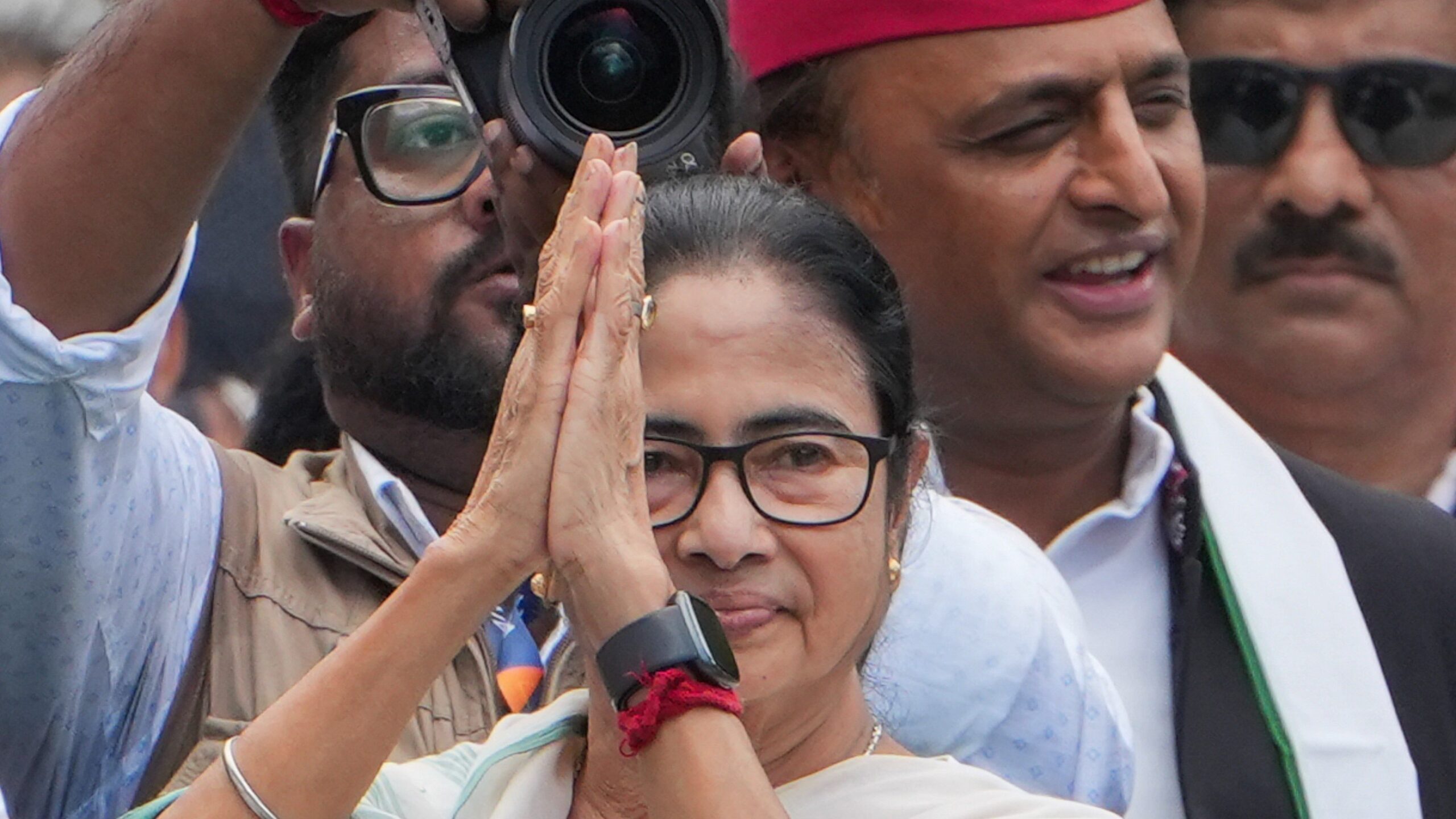Politics
Mamata Banerjee Offers Refuge to Distressed Individuals from Bangladesh Amid Ongoing Turmoil

In a bold statement reflecting her government’s humanitarian stance, West Bengal Chief Minister Mamata Banerjee declared on July 21, 2024, that her state would welcome individuals fleeing distress from neighboring Bangladesh. This proclamation came during the Trinamool Congress (TMC) Martyr’s Day rally held in Kolkata, where Ms. Banerjee emphasized her administration’s commitment to providing shelter to those in need.
Addressing the crowd, Banerjee remarked, “While I must respect the sovereignty of Bangladesh and refrain from overstepping into their internal matters, I assure you that if vulnerable individuals seek refuge in West Bengal, we will extend our support and accommodation.” This declaration was indicative of a broader empathy towards those affected by the turmoil currently unfolding in Bangladesh.
In her address, Ms. Banerjee pointed to a relevant United Nations resolution advocating for the relocation and assistance of refugees in regions near conflict zones. Citing historical instances, she recounted how West Bengal had previously opened its doors to those escaping ethnic violence in Assam, promoting a narrative of solidarity and compassion.
Recent reports indicate a surge in the number of individuals, particularly students, returning to India from Bangladesh due to escalating violence. For instance, approximately 300 students crossed the Hilli border on the same day, with the majority heading to their localities, while 35 were provided assistance by the state administration to ensure their well-being.
Mamata Banerjee took to social media, expressing her support and documenting the state’s efforts: “Hundreds of students and others are returning to India from the turmoil in Bangladesh. I have instructed our state administration to assist the returnees.” Her posts highlighted the operational measures taken in response to the ongoing crises.
Furthermore, Banerjee’s remarks directed her party members to approach the situation regarding Bangladesh with sensitivity and restraint, recognizing the delicate nature of international relations.
West Bengal shares a significant 2,216 km-long border with Bangladesh, the longest of any state in India, cultivating deep cultural and linguistic connections with its neighbor. This closeness played a role in the state’s response to population movements, reminiscent of past episodes during the 1971 exodus.
According to a statement from the Border Security Force (BSF), over the past four days, 1,062 students have entered West Bengal through various Land Customs Stations (LCSs) such as Ghojadanga, Gede, and Mahadipur, as well as the Integrated Check Post (ICP) at Petrapole. Of these, 901 students were Indian nationals, while others included individuals from Nepal and Bhutan.
A.K. Arya, a spokesperson for the BSF’s South Bengal Frontier, confirmed ongoing cooperation with the Border Guard of Bangladesh (BGB) to ensure efficient assistance for those returning. He highlighted that arrangements have been made for uninterrupted support at the ICP and all LCSs involved.
“Even during the night, coordinated operations have facilitated the safe return of students,” Arya mentioned. Efforts to enhance operations include the immigration desk at ICP Petrapole being open 24/7 to provide constant assistance to returning students.
In light of this humanitarian crisis, the BSF and BGB have worked collaboratively, maintaining a robust communication line to effectively manage the ongoing situation. Senior officers are on high alert across all entry points, ensuring that every student receives the necessary aid and support as they navigate their return home.
However, as Banerjee aims to extend a helping hand, the political landscape has been charged with implications and accusations from opposing factions. The Bharatiya Janata Party (BJP) criticized Banerjee’s proposition, dubbing it an “evil plan” associated with the I.N.D.I Alliance, accusing her of attempting to encourage the settlement of illegal immigrants from Bangladesh in Jharkhand for electoral gain.
Amit Malviya, co-incharge for the BJP in West Bengal, condemned Banerjee’s comments, asserting that the authority over immigration and citizenship rests solely with the central government, thus questioning her right to make such commitments. He voiced concerns that her stance could lead to an influx of illegal immigrants while juxtaposing it against her previous reluctance to permit Hindu refugees fleeing religious persecution from applying for citizenship under the Citizenship Amendment Act (CAA).
These developing events highlight the intense political dynamics surrounding the issue of immigration and humanitarian response in India, as well as the moral responsibilities of states in times of international distress. Amidst the criticisms and the underlying political tension, Mamata Banerjee’s actions underscore the ongoing debate regarding refugee rights and state involvement in humanitarian crises.












